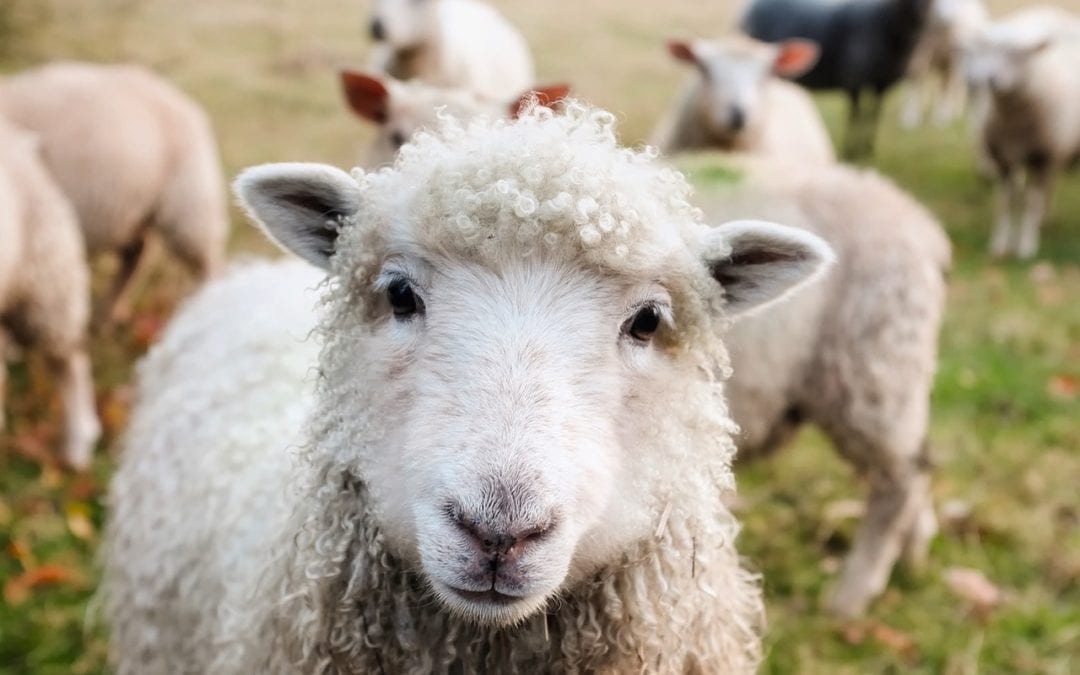
Some lesser known facts about farm animals sets the record straight.
All animals, from birds to bees and fishes to foxes and everything in-between have evolved mechanisms to survive life out in the wild. While having become domesticated over thousands of years, farm animals are no exception. They have behavioural needs that need to be fulfilled. For example chickens need to scratch around in the dirt, cows need space to stretch their legs and romp, and all farm animals need to at least occasionally feel the sun on their backs.
“It is easy not to think about farm animals, about who they are, what they experience or even what they mean to us.” Says Amy Hatkoff, the author of The Inner World of Farm Animals: Their Amazing Social, Emotional, and Intellectual Capacities. City dwellers in particular tend to be rather detached from farm animals, and don’t associate their food with a living, breathing, conscious being that feels pain and experiences trauma and suffering.
Yet, animals that are commonly raised for food are some of the most gentle and intelligent beings out there, and need to be shown the respect and compassion they deserve. Let’s look at some amazing traits of farm animals that Hatkoff highlights in her book, which not many people are aware of.
Chickens are no Bird Brains
Adult chickens are by no means dumb, and nor are their offspring. Once hatched, little chicks can remember that something exists even if they can’t see it. Human babies aren’t able to do this until they are a few months old.
Geese Search for Soul Mates
Geese tend to be monogamous, and will mate with one partner for life, only searching for a new partner if their soul mate dies. Some geese choose to remain alone for the rest of their lives, which can be as long as 25 years.
Move Over Kitty
Turkeys are known to be affectionate towards humans. They love being caressed and will give a contented purr to show their appreciation. While a turkey may not exactly be the purrfect house-pet, they are still worthy of love and affection all the same. Then again, if you suffer from cat allergies you may want to consider a turkey instead.
City Ducks are Loud Mouths!
Lets face it, things are far quieter in the country than in our fast-paced cities. The same applies to ducks. To compensate for the city noise, and to be able to communicate above all the city hum-drum, city ducks have to shout louder than their country dwelling counterparts, who have a much softer quack.
How Now Brown Cow?
Believe it or not cows don’t just stand around and chew cud. They actually like problem solving, which in itself indicates they have self-awareness, and by extension consciousness. Cows also work as a team, with one or two mother cows taking on calf-sitting duties giving the rest of the moms the freedom to graze further away.
Pigs Can Fly… Well Almost
Pigs are amazingly clever creatures and arguably the most under-rated in terms of their intelligence. Pigs can learn to play computer games, which indicates that they fully grasp the notion that what they do in one place can have an impact elsewhere. Another big misconception is that pigs are dirty. The reality is that they are incredibly clean animals, who quickly learn to do their business in one place to keep their pen as clean as can be. Pigs do like to wallow in mud when it is hot, but that is because they don’t sweat and wallowing in mud helps them keep cool when the mercury rises. Tame pigs will come when called, and in some cases are even more obedient than dogs.
1 Sheep, 2 Sheep, 3 Sheep, 4…
Sheep are naturally gregarious animals and can suffer from separation anxiety when kept alone. Showing a lonely sheep photos of a breed of sheep that it’s familiar with can offer some stress relief in such cases. Sheep can also become very attached to their human friends, and like pigs (and dogs), will respond when called.
Forget Factory Farming
Intensive farming on an industrial scale very often fails to acknowledge the needs of these animals or their intelligence and ability to suffer. As a result, billions of sentient farm animals that are commercially farmed for eggs, milk or meat are confined in filthy, over-crowded conditions, where they are often subjected to unnecessary pain, deprivation and suffering. In confined conditions such as these, farm animals are not only vulnerable to disease and mutilation by their neighbours, they are also unable to exhibit their natural behaviour that is essential for their happiness and wellbeing. If we want to make the lives of commercially farmed animals more bearable, we really need to rethink our current farming practices. We need to adopt farming methods that raise animals more humanely, recognising that these are sentient beings that have needs that need to be met while being raised in captivity.
All animals should be treated with respect and compassion; farm animals are no exception. Raising animals for food is acceptable if they are kept in humane conditions that considers their welfare and behavioural needs. As sentient beings, farm animals deserve to be raised with proper care and respectful agricultural practices before they end up as a chicken nugget or beef burger on our plate. As consumers, the power to change the circumstances of the billions of farm animals that suffer so unnecessarily rests entirely in our hands. For the sake of farm animals everywhere, choose you food carefully, ensuring that any meat, eggs or diary products that end up on your table have been humanely produced. Alternatively, opt for a plant-based diet, preferably sourcing organically grown fruit and veggies that are both good for your health and that of the planet.